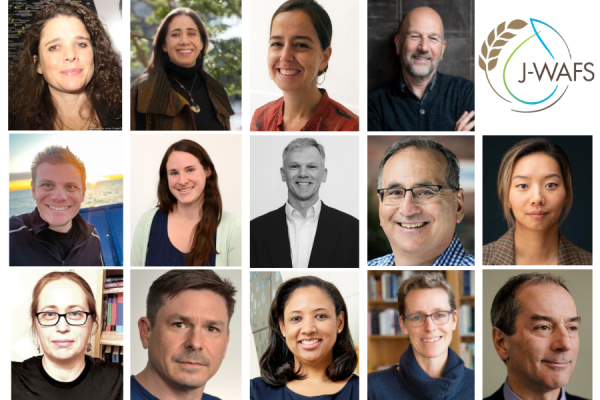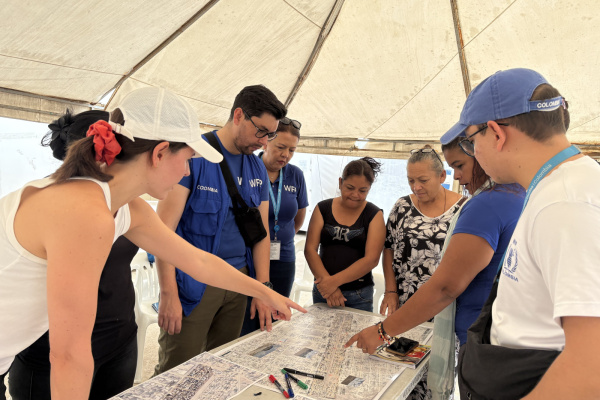Our Research Empowering Indigenous communities: A framework for climate resilience and migration planning in La Guajira, Colombia

A woman standing near a group of make shift shelters at the La-Pista settlement.
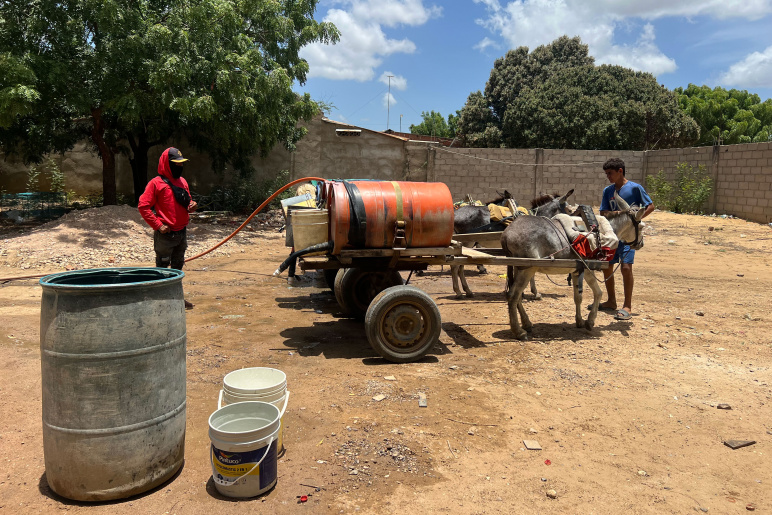
Burrito carts are used to carry water
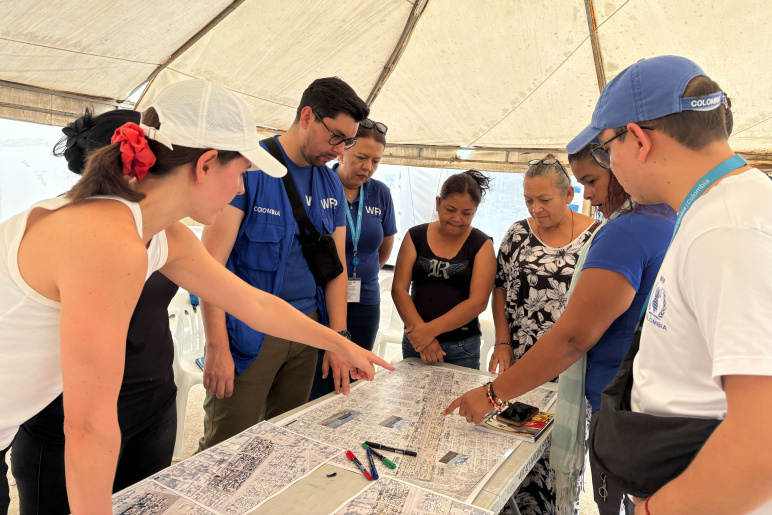
A focus group around a map of the La-Pista settlement
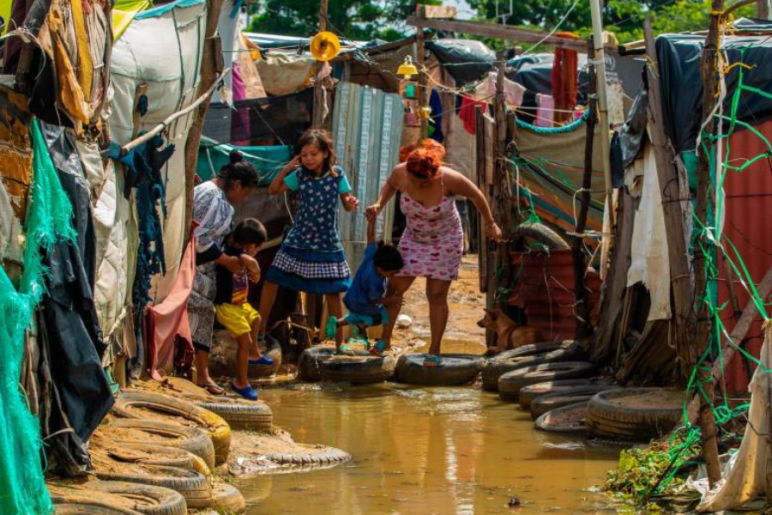
La Pista flooded after storm. Image by Camilo Suarez for El Colombiano (https://www.elcolombiano.com/colombia/mas-de-13-mil-personas-viven-la-pista-de-aterrizaje-del- antigua-aeropuerto-de-maicao-en-la-guajira-en-el-asentamiento-la-pista-PF19587338).
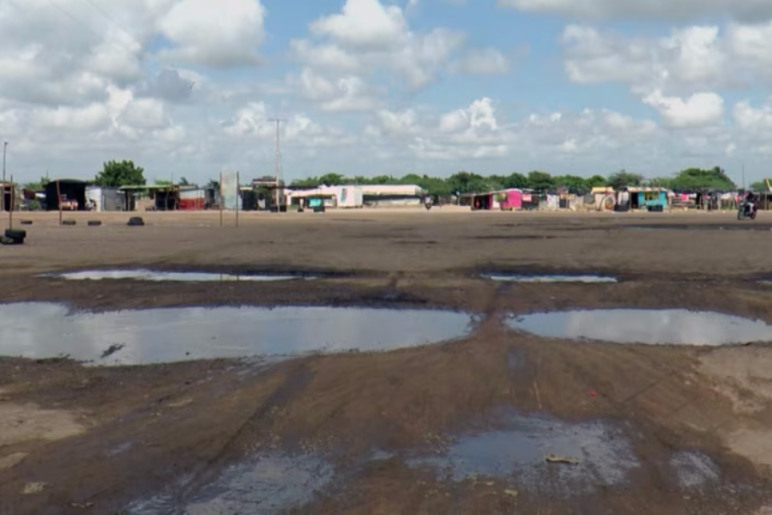
Former runway of the Maicao airport, in the department of La Guajira, now converted into an improvised community of Venezuelan and local migrants. Photo credit: Voz de America, (https://www.vozdeamerica.com/a/una-pista-de-aterrizaje-alberga-a-mas-de-12mil-migrantes-venezolanos-y-locales-en- colombia/6836992.html).
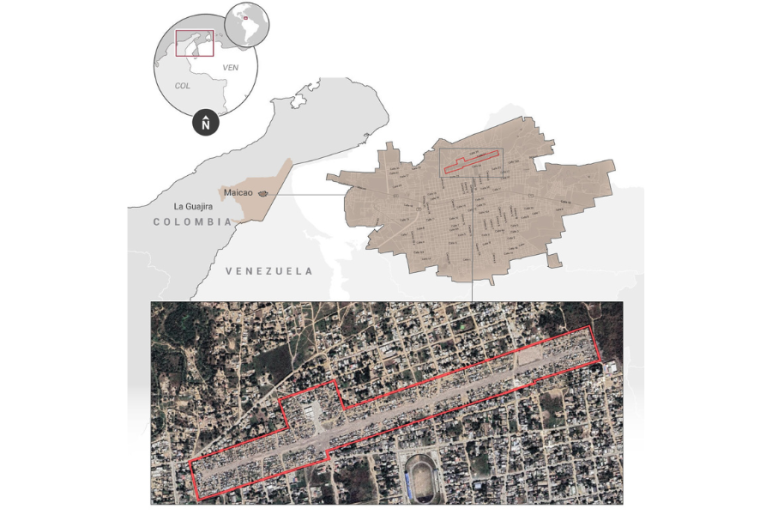
Location of La Pista. Image by Insight Crime (https://insightcrime.org/news/la-pista-venezuelans-find-refuge-in-colombian-desert/).
Principal Investigators
Sarah Williams
- Associate Professor
- Department of Urban Studies and Planning
Eran Ben - Joseph
- The Class of 1922 Professor
- Department of Urban Studies and Planning
Gabriella Carolini
- Associate Professor
- Department of Urban Studies and Planning
Janelle Knox-Hayes
- Lister Brothers Professor of Economic Geography and Planning
- Department of Urban Studies & Planning
Challenge:
How can we develop and implement a scalable, collaborative planning framework that addresses the multiple water and food insecurity challenges faced by Indigenous groups and migrant communities in peri-urban areas that experience severe droughts due to climate change? How could this framework be tailored to respect and include these communities’ cultural, technical, and social dynamics while ensuring long-term sustainability?
Research Strategy
- Collaborate with Indigenous and migrant communities to co-design processes and interventions that address water and food shortages in drought-affected peri-urban areas, focusing on sustainable, culturally sensitive solutions
- Conduct multiple workshops with local communities, NGOs, and government stakeholders to understand traditional governance structures and ecological management practices, ensuring solutions are community-driven and contextually relevant
- Combine insights from international research on drought resilience with local environmental and cultural knowledge to create adaptable and scalable water and food sustainability interventions in urbanized settings
Project description
This project seeks to tackle the pressing issue of water and food shortages in Maicao, a region in Northern Colombia severely affected by drought due to climate change. This area is home to both the Indigenous Wayúu people and Venezuelan migrants who face significant challenges in accessing basic necessities. The research aims to create a collaborative planning framework that respects and integrates these communities' unique cultural and social dynamics.
The project will co-design sustainable solutions with the people of Maicao. The team will engage the community through a series of workshops that will help to understand traditional ecological management practices. This process will ensure that the developed solutions are effective, culturally appropriate, and supported by those they are meant to help.
By combining research on drought resilience with local knowledge, the goal is to develop interventions that can improve water and food security in Maicao. These solutions will be designed to be scalable and replicable in other regions facing similar challenges, potentially contributing to other indigenous and migrant communities worldwide who face the impacts of climate change.
News
Additional Details
Impact Areas
- Water
- Food
- Climate & Sustainability
Research Themes
- Water Purification & Desalination
- Water Resources & Infrastructure
- Sustainability & Adaptation
Year Funded
- 2024
Grant Type
- Seed Grant
Status
- Ongoing




